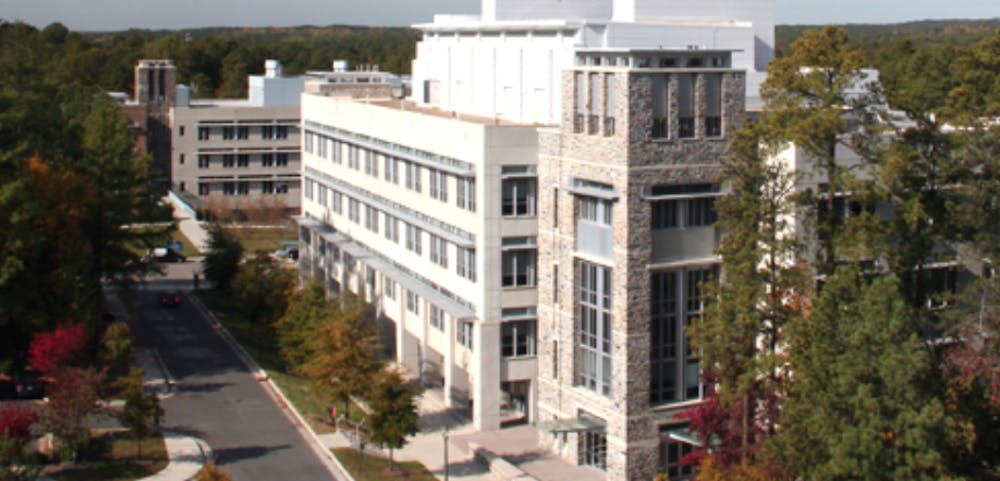Duke scientists have successfully engineered a protein antibody that is capable of targeting cancerous tumors.
In a collaboration between researchers at the Duke Human Vaccine Institute and Duke medical faculty, the team created an antibody that is able to target the human protein complement factor H or CFH, which has been shown to be abundant in tumor tissues and is believed to play a role in stifling an immunological response to malignant cancer cells. The study—which was published in Cell Reports in May—revealed that the use of mAb7968, a newly-engineered antibody that targets CFH, could induce toxic conditions in over nine cancerous cell lines and consequently kill many of those cells.
Dr. Edward Patz, James and Alice Chen professor of radiology and principal investigator of the study, added that a rodent form of mAb7968 was also shown to be effective in a mouse model.
“There’s not necessarily a great correlation between the [immunology] of mouse models and human, so there is very little way to know how well this is going to work or not work in humans,” Patz said. “Going from here, we’re trying to get the resources to go to Phase 1 human clinical trials. We want to see how well this [antibody as a drug] does in human patients.”
Dr. Anthony Moody, associate professor of pediatrics and assistant professor in the department of immunology, noted that the team plans to attempt further testing of the antibody on additional systems and models in hopes of reaching clinical trials soon.
mAb7968 and its rodent counterpart are cellular antibodies, which work through the body’s immune system by binding to exposed regions of their targets and thus signaling a cellular response. Moody explained in an email that the antibodies used for the study such as mAb7968 were recombinant proteins, which means that the original biological antibody for CFH extracted from human tissues was modified in some way in order to enhance its function.
“The antibody recognizes a specific form of the target protein—complement factor H—that appears to be specific to the tumor environment,” Moody wrote. “This allows the immune system to recognize those cells and kill them, and the data in the [study] shows that one mechanism for that is mediated by complement. Complement is the name for a group of proteins in the blood that are designed to target and attack cell membranes, an activity that is enhanced by having antibodies bind there also.”
Moody added that although it is hard to say whether a recombinant antibody is more effective than a natural human antibody, using the recombinant approach allowed the team to modify the original antibody in order to favor certain functions. The approach also allowed them to synthesize the new antibody in large quantities for the purposes of their study.
In the future, the recombinant antibodies could be engineered to interact with other parts of the immune system such as natural killer cells, which are a type of white blood cells capable of responding to tumor formation, Moody wrote.
According to Patz, the motivation of targeting CFH as a therapeutic approach to tumor development came from clinical observations of patients with early-stage cancers that never or very minimally developed metastasis, which is the spread of a localized disease such as cancer to other parts of the body.
“We tried to understand why some [individuals] metastasized more than others and the molecular pathways which are implicated, but nobody really knows or can predict which ones are going to be more indolent or more aggressive,” Patz said. “So we looked back at those who we knew historically had done very well and tried to understand how and why they did well...to understand what their immune systems did to keep the cancer in check and prevent them from developing metastasis.”
Get The Chronicle straight to your inbox
Signup for our weekly newsletter. Cancel at any time.

